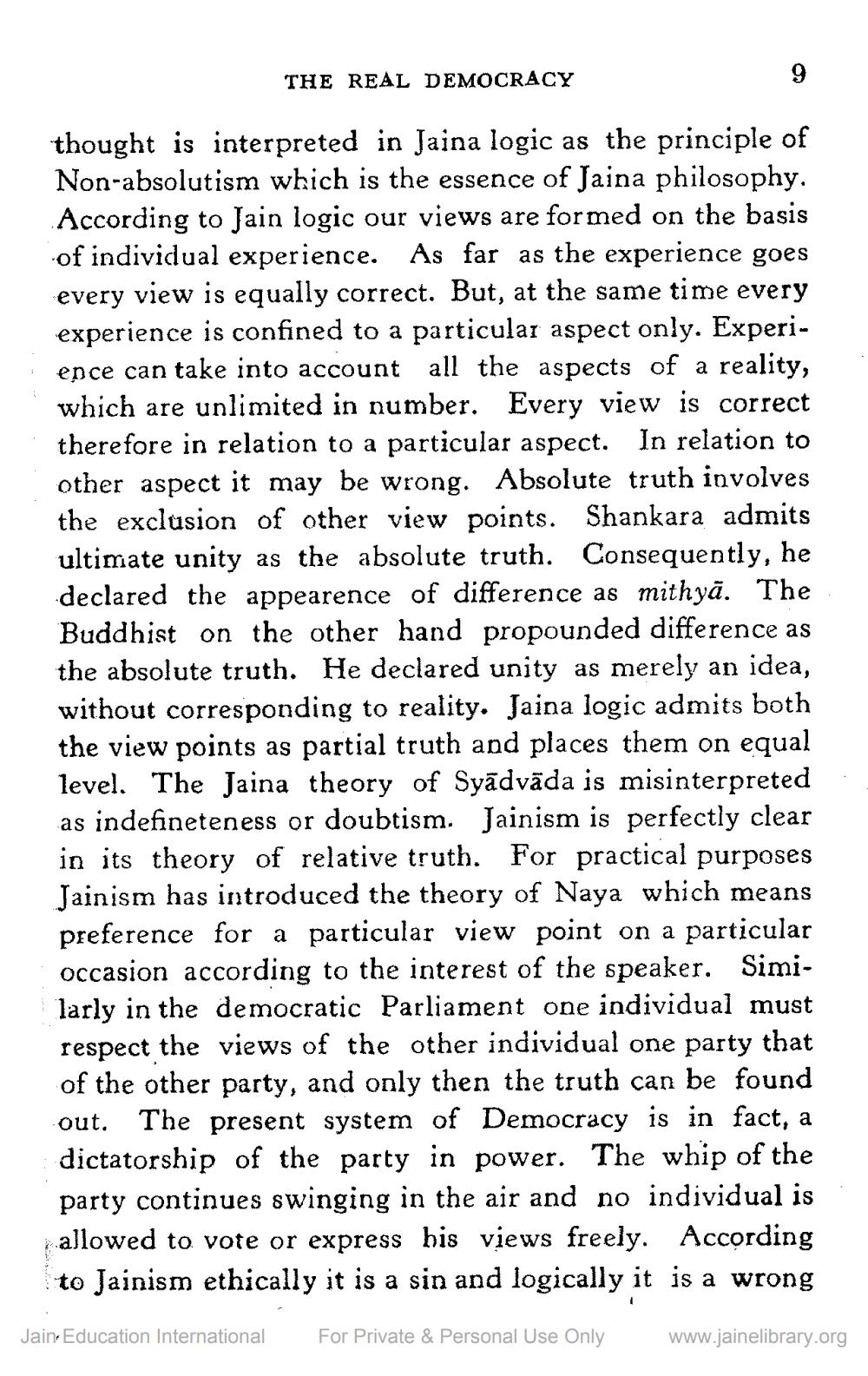________________
THE REAL DEMOCRACY
9
thought is interpreted in Jaina logic as the principle of Non-absolutism which is the essence of Jaina philosophy. According to Jain logic our views are formed on the basis of individual experience. As far as the experience goes every view is equally correct. But, at the same time every experience is confined to a particular aspect only. Experience can take into account all the aspects of a reality, which are unlimited in number. Every view is correct therefore in relation to a particular aspect. In relation to other aspect it may be wrong. Absolute truth involves the exclusion of other view points. Shankara admits ultimate unity as the absolute truth. Consequently, he declared the appearence of difference as mithyā. The Buddhist on the other hand propounded difference as the absolute truth. He declared unity as merely an idea, without corresponding to reality. Jaina logic admits both the view points as partial truth and places them on equal level. The Jaina theory of Syādvāda is misinterpreted as indefineteness or doubtism. Jainism is perfectly clear in its theory of relative truth. For practical purposes Jainism has introduced the theory of Naya which means preference for a particular view point on a particular occasion according to the interest of the speaker. Similarly in the democratic Parliament one individual must respect the views of the other individual one party that of the other party, and only then the truth can be found out. The present system of Democracy is in fact, a dictatorship of the party in power. The whip of the party continues swinging in the air and no individual is allowed to vote or express his views freely. According to Jainism ethically it is a sin and logically it is a wrong
Jain Education International
For Private & Personal Use Only
www.jainelibrary.org




